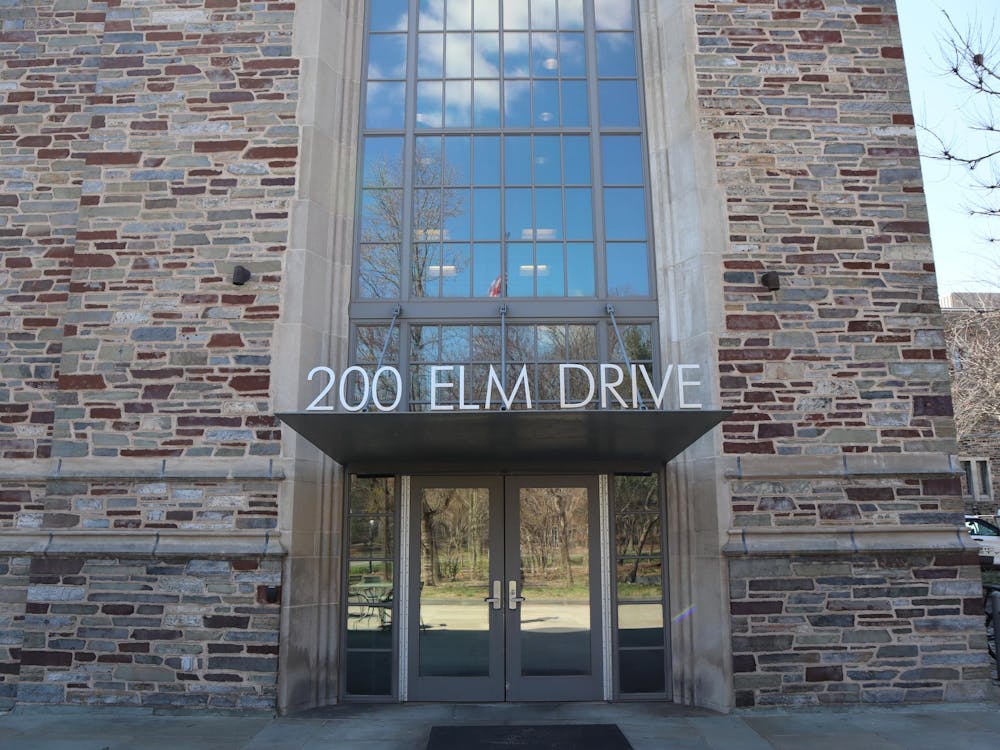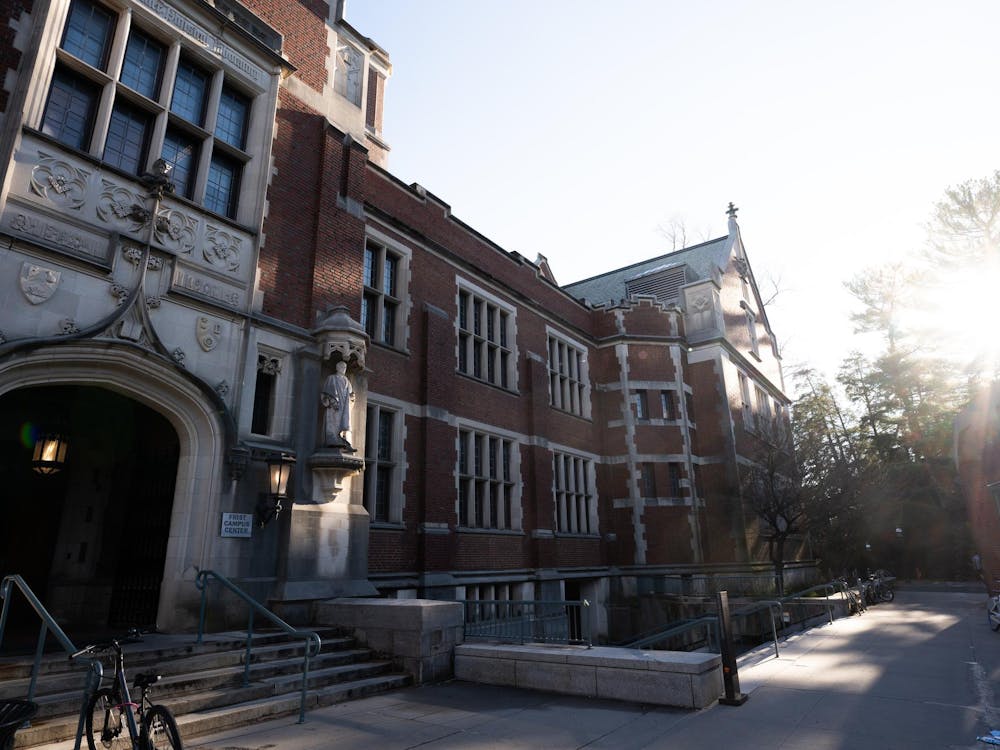When the Class of 2003 entered Princeton in the fall of 1999, the stock market was in record-high territory and rising, the current Palestinian intifadah had not yet started, and the 11th of September was an entirely unremarkable date.
Most would agree that three years later, the state of the nation and the world have gone through sobering times, and the University community has been affected in many ways.
For one, it may be harder for seniors to find jobs after graduation.
"It's clear that the economy has caused us a number of problems over the last couple of years," said Beverly Hamilton-Chandler, director of career services. "Our last recruiting season was not a particularly good one."
While the strength and weakness of the job market is cyclical, and while the economy will get better, the current conditions "might be a more realistic picture of what a job market is about," explained Hamilton-Chandler.
During the late 1990s there was a wide variety of opportunities for employment in different fields, she said, noting that the on-campus career fair held in 1999 drew about 120 companies and organizations interested in hiring students.
However, Brian Kernighan, computer science professor and department representative, said almost all students in his department are still finding jobs.
"My sense is that last year it was harder to get jobs but not at all impossible," he said.
This is in part because students had not been as reliant on the dot-com bubble, a shrinking part of the industry, as students at other universities such as Stanford, Kernighan explained..
One effect of the downshift in the economy is that more University graduates are continuing their educations rather than entering the workforce right away, said Hamilton-Chandler.
Graduate school applications are up, Kernighan said. Eleven of the 46 members of the class of '02 in his department enrolled in a graduate program, with 26 others accepting job offers. The remaining nine graduates were undecided or did not report their plans.
Politics professor Robert George said that the cyclical nature of the economy is behind the tightening job market.

"When I came here in the 1980s there was great confidence that you could go out and get a really high paying job, until the '87 [stock market] crash," George said.
During the 1990s confidence was restored and again students were going to financial services houses and getting high-paying jobs out of college, he said.
"It's a condition of human economics where it's going to go back and forth, and I think our students will respond," he said.
In recent years, violence both overseas and close to home has grabbed headlines and shaken communities, forcing students to reevaluate priorities to meet an uncertain future.
"The students in this generation didn't know a time that was without prosperity," said Janet Dickerson, vice president for campus life. The Persian Gulf War lasted only a few weeks and the decade that followed was a time of relative peace, she said.
"When the economy was terrific, everyone was more engaged in their individual searches for happiness and wholeness," Dickerson said.
While students during that era were not smug about their futures, they were certainly content and satisfied, she said.
Since Sept.11, Dickerson said she has seen more students seek counseling services as well as non-profit work.
"Students are really quite anxious about what this is all about," she explained.
George said that the shock of Sept. 11 and the violence in the Middle East has made students begin to question some of the values they held before the attacks.
Prior to Sept. 11, there was a tendency among students to believe that "we can judge what is right or wrong for our own culture but we are not authorized to make judgments about other cultures, George explained. .
"Something inside tells them that we simply cannot abstain from judging something as grotesquely wicked as flying planes into buildings as being morally wrong," he explained.
Such ethical re-evaluation is a good thing because critical thinking and reflection are the basis of liberal education, he said.
The events of the last couple of years have also caused more students to take an interest in politics they might have not otherwise, said Carlos Ramos-Mrosovsky '04, member of the Princeton Committee Against Terrorism and editor-in-chief of its bimonthly publication, 'American Foreign Policy.'
"Sept. 11 was an absolute disaster and a horrible, tragic attack, but before that politics was very drab. The issues that the country faces now are issues that young people care about — it's war and peace and national security," he said.
Students' increasing appetite for politics is evidenced by the growing number of on-campus publications, Ramos-Mrosovsky said.
Only recently, the political publications on campus consisted solely of the annual issues of the Progressive Review and the Princeton Tory, he said. Now, the list includes 'American Foreign Policy,' 'The Idealistic Nation,' 'The Princeton Spectator,' and 'Common Sense' as well.
"People recognize it's more relevant to them," he explained.
With the international spotlight cast on the Middle East, student interest in the University's Department of Near Eastern Studies has grown dramatically, said Katherine Fischer, the department's program director.
Enrollment in classes such as NES 201: Introduction to the Modern Middle East and NES 338: The Arab-Israeli Conflict has "always been pretty good, but we've never seen numbers like this," Fischer said.
NES 201 had 6 undergraduate students in the fall of 2000; last year 63 students enrolled and this semester there are 143 students in the class, she said.
In addition, the department offered some new classes largely as a result of the terrorist attacks, such as NES 367: The Historical Roots of the Bin Laden Phenomenon.
While students are, on average, more interested in national and international affairs than before, they tend to be insulated from 'real world' problems by the University's location and atmosphere, said Wilson School professor Stanley Katz.
"Any university does that to some extent — it's one of the things that should happen — but it's always true that Princeton is more isolated than other universities," Katz said.
Princeton students tend to be more "risk-averse," he said, because they live in an environment that shelters them from crime, ugliness and insensitivity, he said.
USG President, Nina Langsam '03 said that college students as a whole tend to distance themselves from the world.
"It's human nature to want to be happy, and if you look at the news, it's definitely a downer," she said.
Katz agreed, "There is a kind of culture at Princeton that makes it difficult for students to have serious discussions over the dinner table," he said.
That may be simply because of the academic workload students face, Langsam said. "[Students] want to have some down time," she said.
However, students were very much willing to devote their time to helping the victims of Sept. 11, said Eli Goldsmith, Class of 2004 president.
The junior class worked with University administrators to create the Arts Alive program to take children affected by the disaster to cultural and performing arts events. Since its inception last year, more than ten thousand school kids have been brought to Broadway shows and area museums by over a hundred University student volunteers, Goldsmith said.
"I was amazed at the enthusiasm and how much [the students] desired to help the city and heal the city," he said.
While the sobering reality of the current era has yet to be understood or even fully sink in, it is clear that students are more often making private difficult decisions, Dickerson, the vice president for campus life, said.
"It's very upsetting. How do we engage these issues?" she said.








